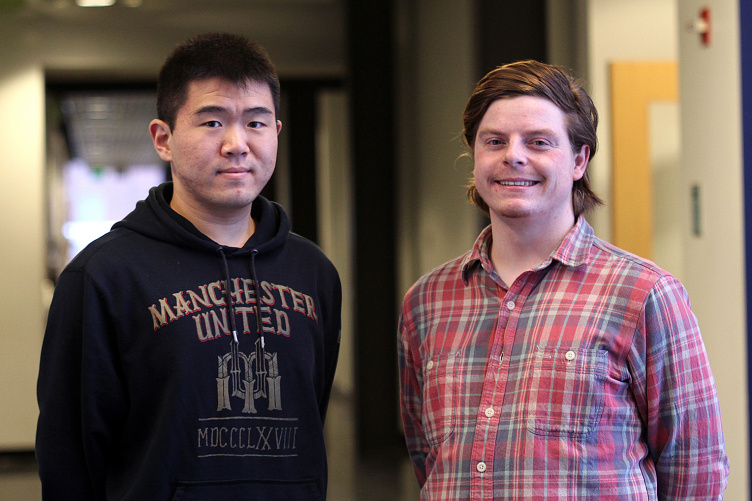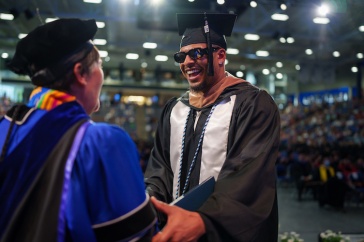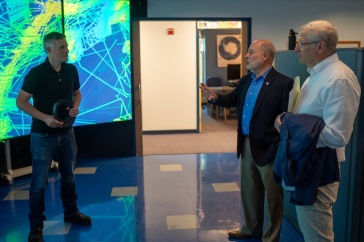
Graduate student Zhiming Zhang (left) and senior Sean Kramer finished third in the Embedded Security Challenge.
For the second straight year, UNH students have finished in the top three at New York University’s Embedded Security Challenge, held November 10 – 12.
New Hampshire native Sean Kramer ’17 and Zhiming Zhang, a first-year master’s degree student from China, finished third in this largest and longest-running hardware security competition, which features competitors from colleges and universities across the globe. Both Kramer and Zhang are studying computer and electrical engineering in the College of Engineering and Physical Sciences.
Secure in his Pursuits
Sean Kramer ’17 had little to lose when deciding to represent UNH at the 2016 Embeded Security Challenge.
As an undergraduate student, Kramer was set to compete against more experienced doctorate and graduate students from across the globe.
Despite those odds, Kramer excelled in the field and earned a third-place finish at the largest and longest-running hardware security competition in the world.
Read the full story.
“We performed well because of the good team work,” says Zhang. “I had a good partner and a very knowledgable advisor. Both helped me a lot in this endeavor.”
Qiaoyan Yu served as advisor for the duo. Yu advised last year’s third-place team as well.
“My students were well-motivated and fast-learners,” says Yu, an assistant professor in electrical and computer engineering. “Competing with those teams and winning such an award is a big achievement in their career.”
The seven event finalists, chosen from dozens of qualifying-round entrants, competed in front of a panel of security experts in New York. The University of Central Florida won the competition, and Grenoble INP-Esisar of France earned second place. All finalists
Kramer and Zhang began preparing for the event in September and, later in autumn, submitted a four-page report for the qualifying stage. The report documented the attack methods implemented and the potential modifications needed to protect against exploits. The final round required an eight-page report, poster presentation and demonstration of countermeasures before judges and competition organizers.
Kramer and Zhang presented low-cost software and hardware collaborative countermeasures to mitigate attacks.
“A strong report was monumental for our success at each phase of the competition,” says Kramer. “Professor Yu stressed that any team could come up with demonstration, but what the judges really want to see is a team that can produce a well-written report along with their demonstration.”
-
Written By:
Brooks Payette | UNH College of Engineering and Physical Sciences | brooks.payette@unh.edu | 603-862-5441



















































